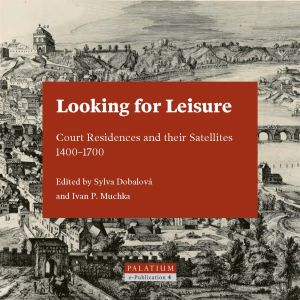Grinder-Hansen, Poul
Looking for Leisure: Court Residences and their Satellites 1400–1700
This volume focuses on the leisure buildings – often called casino, palazotto or Lusthaus – which formed an integral part of princely residential complexes in Europe in the period 1400–1700. The aim of this collection is to study these satellite buildings as counterparts to the main palaces. The relatively small size of these structures belies their importance. They took on representative roles and developed certain ideological programmes that would have been difficult to achieve in the larger residential buildings.
Many of these buildings were meant only for seasonal use. Their primary role was as a place of rest, leisure and repose. This relaxation could either take a contemplative form or could include such vigorous activities as hunting, sports and various court festivities. The case studies presented here illustrate the shared principles of these recreational buildings and investigate how their architects and patrons attempted to realize a ‘paradise on earth’ and managed to bring the human world into harmony with the natural world.
Discussing examples from all over Europe – from Central Europe via Italy and France to Denmark and Scotland – the seventeen papers gathered in this volume address four different aspects of ‘palazotto culture’: the terminology that was used to identify these small palaces, which reflects the wide variety of needs they fulfilled; the functions and typologies of these buildings; their artistic decorations; and their gardens and natural surroundings.







